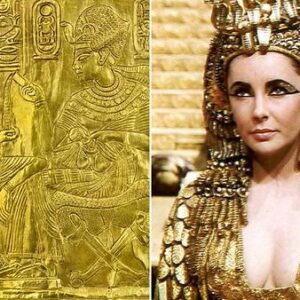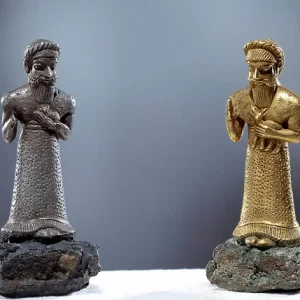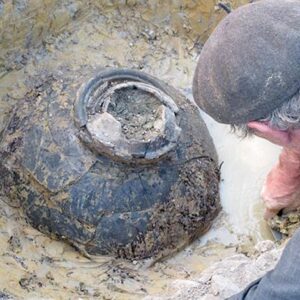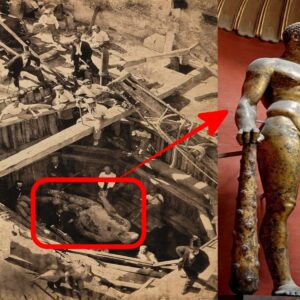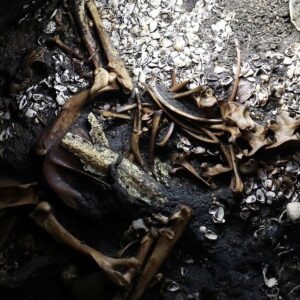“According to scientists, the origin of the Egyptian pyramids can now be understood.”

“The pyramids have left scientists scratching their heads.”
Inside 2.3 million slabs of limestone and granite, each weighing about two tons, form just the Great Pyramid, a puzzle that has confounded historians for centuries.
Without modern tools like cranes, scholars were puzzled as to how the prehistoric civilization was able to move and stack the gigantic slabs; some even proposed theories that aliens could be responsible.
Archaeologists around the world now believe they may have found the solution and that the Egyptians may have taken advantage of a tributary of the Nile River to move huge boulders to Giza.”

“Some people think that the pyramids were placed in Giza by aliens.
Scientists looked for evidence of pollen and plants normally seen around Africa’s longest river in a laboratory in France using fossilized soil samples sent from the Giza floodplain.
Scientists had to dig up to nine meters deep to recover the samples, which was a laborious operation.
The existence of the Khufu Branch, a canal off the river that allowed the ancient builders to move the slabs, was eventually confirmed, proving that their efforts were worthwhile.

“The enigma of the construction of one of the pyramids by the ancient Egyptians
“I was very fascinated because this shows that the components of the pyramid’s construction were transported through water,” environmental geographer Hadel Sherif told the New York Times.
He went on to say that without the tributary, it would have been “impossible” to build the spectacular ancient structures.
Approximately 2,000 years after the construction of the pyramids, the Cheops branch dried up around 600 BC
Sherif believes that the deep river gorges could explain the discrepancy between the ancient Egyptians.
The construction of the pyramids can be partly explained by learning more about the surrounding landscapes, he continued.
Even a fragment of papyrus discovered in the neighboring Red Sea served as inspiration for the discovery.”

The antiquated text described how an artificial waterway, known as the “Merer,” sent limestone up the Nile to Giza.
The three pyramids of Giza were built as grand tombs for the Egyptian pharaohs between 2550 and 2490 BC
Pharaoh Khufu, who ruled during the Fourth Dynasty of the Old Kingdom, is buried in the Great Pyramid, the tallest pyramid in Egypt, while his son Khafre and grandson Menkaure are buried in the other two major pyramids.
Smaller buildings were built for the mothers and wives of the workers.
